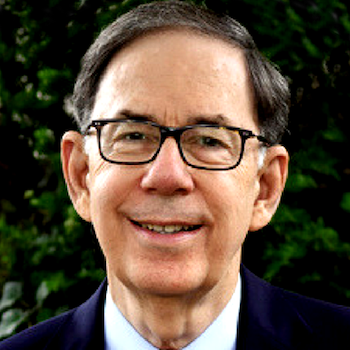Back to series
Hindrances to Discipleship:


Hindrances to Discipleship:
Freedom from the Flesh
(This is the final article of a four-part series on Hindrances to Discipleship Part 1, Part 2, Part 3, Part 4.)
Click here to open a Print - Friendly PDF
In this issue we present our treatment of “the flesh,” one of the three biblical hindrances to following Jesus Christ. In previous issues of Knowing & Doing, we focused on the two other major hindrances, “the devil” and “the world”.
In the last article, we looked at the nature of the “flesh” and saw something of the problem we are up against as we try to live for Christ. It was a grim and discouraging sight. Is there any hope of deliverance from the flesh and the enslaving sins it produces? Yes. Thanks be to God, we can be set free and empowered to live a new life—a life that transforms us, blesses others, and glorifies God.
We Can Be Set Free
Here is a helpful way to think about our predicament and how to escape it. In relation to the flesh and sin, every human being is like a patient who has a fatal disease. We inherited this disease from Adam, and we worsen it with our choices each day. But unlike some fatal diseases, death is not inevitable. Treatment is available and effective if taken soon enough. And, amazingly, it is completely free. The treatment, of course, is the gospel—the Good News that Jesus, the Son of God, died on the cross to atone for our sins and reconcile us to God and then rose from the dead. To properly take this treatment, we must repent of our sins and trust in Jesus as Savior and Lord. Faith in Jesus alone (not Jesus plus good works) frees us from the guilt of our sins, delivers us from the wrath of God, liberates us from the devil’s oppression and brings us new life in Christ.
But that’s not all. Trusting Christ also brings us into union with Him and thereby breaks sin’s reigning domination in our lives. Paul says, “We know that our old self was crucified with [Christ] in order that the body of sin might be brought to nothing, so that we would no longer be enslaved to sin. For one who has died has been set free from sin” (Rom. 6:6–7).1 What does this mean? The “old self” Paul refers to is the unregenerate person we were before trusting Christ, that is, our life as it was “in Adam,” as part of this present evil age. It was shaped by the sinful flesh and expressed in the particular sins of thought, word, deed, and desire that dominated us. That old self died when we repented and trusted Christ. As a result we are no longer in Adam but in Christ, and a new self has been brought to life in us by the Holy Spirit.
We have become a new creation in Christ and part of the age to come, which began when He rose from the dead and will come to full fruition at His second coming. Because of this profound change, we now want to live a life that pleases God, a life of obedience. And we can do so because the Holy Spirit now empowers us, and the sinful flesh (which Paul also refers to as “the body of sin”) has been “brought to nothing,” that is, greatly weakened and no longer able to keep us enslaved to sin. The bondage of our will to sin has been broken, and we are now free to obey God. (In this issue see the article “Dying to the Flesh,” by Bill Kynes, for a clear and very helpful treatment.)
 Does this mean that henceforth we experience a life untroubled by the flesh and sin? No. Our old self has indeed died, and our bondage to the sinful flesh has been broken. We have died to sin. But though sin no longer reigns in us, it does still reside in us. And since we live in “this present evil age” (and still feel its effects in our “mortal bodies” which are subject to death), sin remains a possibility if we choose to yield to it rather than the Spirit.
Does this mean that henceforth we experience a life untroubled by the flesh and sin? No. Our old self has indeed died, and our bondage to the sinful flesh has been broken. We have died to sin. But though sin no longer reigns in us, it does still reside in us. And since we live in “this present evil age” (and still feel its effects in our “mortal bodies” which are subject to death), sin remains a possibility if we choose to yield to it rather than the Spirit.
Because the flesh is still alive, ready to reassert itself and take on new strength if we yield to it, we can become ensnared and defeated by yielding to sin. And indeed it isn’t long after conversion that sin begins to stir again. Some of the sinful habits and desires of the flesh that we once struggled with reappear, crying out to be satisfied. We also discover other sins we had not previously been aware of. At that point we may wonder, “What is going on? Have I really been saved or not?”
Actually, this is to be expected, and Paul addresses it by saying:
So you also must consider yourselves dead to sin and alive to God in Christ Jesus. Let not sin therefore reign in your mortal body, to make you obey its passions. Do not present your members to sin as instruments of unrighteousness, but present yourselves to God as those who have been brought from death to life, and your members to God as instruments of righteousness. For sin will have no dominion over you, since you are not under law but under grace. (Rom. 6:11–14)
In other words, we must reckon and count as true (even though it might not feel that way sometimes) that we are no longer slaves of sin but are now alive to God in Christ. Sin’s reign (rulership, domination) in us has been broken, and we can now live for God. But sin’s residue remains, and we must not yield to it lest it regain strength. A new era has dawned, but it has not yet been fully realized. We are “new men,” united with Christ, yet we are still living in mortal flesh, not yet raised with Christ in glorified bodies. For that reason, growing in godliness remains a struggle—though it is a battle we can and will win as we cling to Christ in faith.
John Stott says:
The major secret of holy living is in the mind. It is in knowing (Rom. 6:6) that our former self was crucified with Christ, in knowing (Rom. 6:3) that baptism into Christ is baptism into His death and resurrection, and in considering (Rom. 6:11 RSV) that through Christ we are dead to sin and alive to God. We are to recall, to ponder, to grasp, to register these truths until they are so integral to our mindset that a return to the old life is unthinkable. A regenerate Christian should no more contemplate a return to unregenerate living than adults to their childhood, married people to their singleness, or discharged prisoners to their prison cell.2
So we must proceed to be what we are. This means that as those dead to sin and alive to God, we are to give ourselves wholeheartedly to God as grateful children, actively offering up the “members” of our bodies (eyes, ears, mouths, hands, feet, etc.) as instruments of righteousness for God’s pleasure and glory. In our old life, energized as it was by the flesh, our spiritual deadness and rebellion against God were expressed in sins through the members (parts) of our body. In our new life, empowered as it is by the Holy Spirit, our love for and submission to God is expressed in obedience through the members of our body.
For example, we choose to no longer look with our eyes at pornography but rather at things that are wholesome; to no longer listen with our ears to dirty jokes, gossip, etc., but rather to things that are edifying; to no longer use our mouths to tell lies, gossip, or slander but rather to speak truth and share the gospel; to no longer hold tightly to what is ours but rather to share with those in need; to no longer sit at ease in our bodies but to get up and out in service to God and neighbor; to no longer use our private parts to have sex outside of marriage but to be chaste, and so forth.
In short, now that sin’s reign over us has been broken, we are to give ourselves up to God and set ourselves to obeying the word and will of God from the heart (Rom. 6:17). We have been set free; now we must walk in the freedom we have been given. This is a matter of our will, of choosing to put off the attitudes and behaviors of our old self and put on those of the new self. However, our willing/choosing, while necessary, is not sufficient for victory; we must act in the power of the Holy Spirit, as we will see ahead.
We might think of this as a process of reversing and rooting out our practice of the sinful attitudes and behaviors that have characterized our past life (old self). We must cast off, our old sinful ways and embrace their godly opposites. This is easier and quicker with some sins than others. Depending on how deeply rooted a given sin is, it may take considerable time and effort to eradicate it and cultivate its opposite. Most people, for example, would find it easier to stop lying than to root out sexual lust or greed. Paul is very realistic about the challenge we face:
So then, brothers, we are debtors, not to the flesh, to live according to the flesh. For if you live according to the flesh you will die, but if by the Spirit you put to death the deeds of the body, you will live. For all who are led by the Spirit of God are sons of God. (Rom. 8:12–14)
We must put sin to death, says Paul. And this can be hard business. Just as a large thorn bush with a deep root takes much effort to uproot and destroy, some sins are more difficult than others to root out. But as we work determinedly with the Spirit’s help, the weeds and thorn bushes in the gardens of our hearts are progressively eradicated and replaced with the beautiful, fragrant flowers and fruit of Christlikeness. As we live in this way, motivated not by law but by a grateful, self-giving love for God, the flesh has no dominion over us and gets weaker, while the new self becomes stronger.
 Contrary to what many people seem to think today, this earnest pursuit of freedom from the flesh and sin is not optional for those who have been made alive in Christ. It is simply another way of talking about the pursuit of “the holiness, without which no one will see the Lord” (Heb. 12:14; see also 1 Pet. 1:13–19). Thus it is a matter of life and death. As John Owen said, “We must be killing sin or it will be killing us.” The flesh is always ready to reassert itself in our lives, and the world is a playground full of temptations and snares to entice us.
Contrary to what many people seem to think today, this earnest pursuit of freedom from the flesh and sin is not optional for those who have been made alive in Christ. It is simply another way of talking about the pursuit of “the holiness, without which no one will see the Lord” (Heb. 12:14; see also 1 Pet. 1:13–19). Thus it is a matter of life and death. As John Owen said, “We must be killing sin or it will be killing us.” The flesh is always ready to reassert itself in our lives, and the world is a playground full of temptations and snares to entice us.
The tragic downfall of David and Bathsheba shows that even a godly psalmist is not immune to the temptation to sin. The price of freedom in the spiritual life, as in political life, is “eternal vigilance.” The devil, who sees us as prisoners who have escaped from his jail and seeks to recapture us, skillfully uses the world and its sinful enticements as bait to ensnare our flesh. But as we have seen above, we can escape capture. It is a law of life that what we starve dies; as we starve and put to death the flesh and its sinful thoughts and deeds, we deny the devil access to our moral lives. As an old Puritan once said, “If we would deal with the flesh, it would put the devil out of business over night.”
Practical Next Steps
What practical steps can we take to live this way? Assuming that we have grasped what has been said thus far, the next step is to follow Paul’s instructions. Make some time to get alone with God and your Bible and “present yourselves to God as those who have been brought from death to life, and your members to God as instruments for righteousness” (Rom. 6:13). This means a literal giving of ourselves to God wholeheartedly, without reserve. We give everything we know about ourselves at this time to everything we know about God. Everything must go on the table; nothing can be held back.
So vital is this point that Paul reiterates it in Romans 12:1, “I appeal to you therefore, brothers, by the mercies of God, to present your bodies as a living sacrifice, holy and acceptable to God, which is your spiritual worship.” This is a critical step, without which we will make little progress in the spiritual life. To make this surrender concrete, early in his life Dr. Richard Halverson filled out a blank Bill of Sale, with himself as the seller and God as purchaser, and irrevocably conveyed himself and all he had or would ever have to God and His service. Many of us are stuck right here. Either we have not been taught this truth, or we do not understand what it means, or we refuse to surrender ownership of ourselves to God, or we have surrendered ourselves but later taken back control of our lives. In every case, however, the remedy is the same: to present (or re-present) our bodies as a living sacrifice, holy and acceptable to God.
Doing this clears the way for the next step: to be filled with and empowered by the Holy Spirit. Living for Christ requires the supernatural power of the Spirit. Yet many believers are either confused about or afraid of the Holy Spirit; herein lies another common reason for our weak, anemic lives. We need to take the wise counsel of John Calvin, who somewhere said that we should “believe all that the Scriptures teach us about the Holy Spirit and expect all that the Scriptures promise us from the Holy Spirit.” Some of us are stuck between Calvary and Pentecost. We know that our redemption was accomplished by Christ on the cross, but we don’t realize that it is applied in daily life only by the Spirit, whose fullness we desperately need.
We receive the power to live this life as we obey the command to be filled continuously with the Spirit (Eph. 5:18). There is no other way. Just as a jetliner cannot become airborne without power to overcome gravity, so we cannot be victorious without the Spirit’s power to overcome sin. This means allowing the Spirit to have full control of us and empower our lives. John Stott describes being filled with the Spirit as “a penitent turning from what grieves the Holy Spirit and such a believing openness to Him that nothing hinders Him from filling us.” This explains why it is so critical to present our bodies as a living sacrifice, holy and acceptable to God; for if we are running our life in our own strength and self-chosen way, we are disobeying God, grieving the Holy Spirit, blocking His fullness and power in our lives making ourselves vulnerable to the Devil, and ensuring our own defeat.
It is sometimes thought that once we have been filled with the Spirit, we are permanently empowered and good to go indefinitely. But this is mistaken, “For the fullness of the Spirit is not a once-for-all experience which we can never lose, but a privilege to be renewed continuously by continuous believing and obedient appropriation.” Just as an aircraft requires a continuous supply of fuel to remain aloft, so we need the continuous empowerment of the Spirit to overcome sin. Clearly, continuous faith and obedience are essential for continuous fullness of the Spirit.
This brings us to yet another step, daily walking in the Spirit, which is closely related to being filled with the Spirit. Paul tells us that as we walk in the fullness of the Spirit, we will not gratify the desires of the flesh, which are opposed to the desires of the Spirit and are always seeking to reassert themselves (Gal. 5:16–17).

The desires of the flesh are connected to particular sins we think will give us pleasure in one way or another. But Paul assures us that the Spirit will enable us to resist the temptation and walk in obedience, if we choose to do so. This is a crucial point. Our will must be committed to obeying the Holy Spirit and resisting the desires of the flesh if we are to have victory. Or to put it differently, we must desire and will to do God’s will above our own. If we don’t, we will yield to the flesh by default, with potentially serious consequences. (If there is an area in our lives where we really don’t want to do God’s will, if we will honestly confess it to Him and ask Him to help us become willing, He will answer.)
In some cases we may think, “What’s the harm if it’s just once? God will forgive me.” Such deceiving thoughts come either from our flesh or the devil. The harm, in addition to grieving the Spirit and thus breaking fellowship with God, is that what we feed grows. If we begin to feed the flesh, the flesh will gain increasing domination over us with the potential of leading us back into enslavement to sin. What we must do when we are tempted is immediately turn to the Holy Spirit and ask for help; He will lead and prompt us with the Word of God. This is not an inconsequential matter, for whenever we take a deliberate step into darkness, the next step is easier and the one after that is easier still. Each step puts us that much further from God and progressively hardens our conscience.
And we cannot know where it will all end. Like stepping into quicksand, there is no guarantee that we will be able to extricate ourselves. No doubt David thought just one sexual encounter with Bathsheba wouldn’t matter. But it did matter—greatly. Although he eventually repented (Psalms 32 and 51), he nevertheless incurred God’s disciplinary judgments (2 Sam. 12:7–14) which, as recounted in 2 Samuel 12:15–20, are very sobering.
In other instances, thinking that temptation is just too strong to resist, we deceive ourselves with the thought that God will understand and give us a pass. Perhaps David thought this as well. But this, too, is deception, for, as Paul says, “No temptation has overtaken you that is not common to man. God is faithful, and he will not let you be tempted beyond your ability, but with the temptation he will also provide the way of escape, that you may be able to endure it” (1 Cor. 10:13). In other words, we can overcome temptation if we really want to. How?
When we become aware of sinful desire rising in us and are tempted, we must at once ask the Holy Spirit for strength, remind ourselves of what the Word says, and resist before it can germinate and blossom. James reminds us that “each person is tempted when he is lured and enticed by his own desire. Then desire when it has conceived gives birth to sin, and sin when it is fully grown brings forth death” (James 1:14–15). Resisting vigorously at the first suggestion of sinful desire, before it can conceive and gain strength, is a critical key to overcoming temptation. Wise men and women will seek to avoid being surprised by temptation by asking the Holy Spirit to search their hearts and reveal any indwelling sins so they can close the doors of vulnerability before being ensnared (Ps. 139:23–24).
What if we do give in to temptation and commit sin? We should confess to God as soon as we become aware of our sin, repent and return to Him, asking to be restored and filled afresh with His Spirit and His grace. To repent and return to God doesn’t mean to simply say words like “God, I’m sorry.” It involves a full intention to forsake our sin and a battle to put it to death and root it out of our lives. God is gracious and will forgive those who are truly repentant, for “if we confess our sins, he is faithful and just to forgive us our sins and to cleanse us from all unrighteousness” (1 John 1:9).
Sadly, some people find such a life not to their liking. They believe they can be saved by grace but continue to live in the flesh and ultimately go to heaven. Rooting out sin may be okay for others, but it is not important to them. This raises the question, can a person pray the sinner’s prayer, continue to live in his or her sins as before with no concern or effort to live for God, and then go to heaven? One can only wonder, what kind of grace it is that saves a person and leaves him the same way it found him. Certainly not the transforming grace of God taught in the Bible.
Paul, the apostle of grace, says, “If you live according to the flesh you will die, but if by the Spirit you put to death the deeds of the body, you will live. For all who are led by the Spirit of God are sons of God” (Rom. 8:13–14). The Spirit of God leads the children of God to turn away from sin and to give up themselves to His service, walking before Him in holiness and righteousness all their days.
 Last, but by no means least, we must take the step of making regular use of the means God has given to help us grow and mature in grace. You might think of them as a kind of spiritual medicine that helps us grow stronger in our pursuit of God and Christlikeness and in our battle against the world, the flesh, and the devil. As long as we continue to take our medicine, we will go from strength to strength; but if we stop, or become intermittent, we will begin to lose ground spiritually and become more vulnerable to infection from the world, the flesh, and the devil. Assuming that one has already been baptized, this would mean following the example of the early church; they “devoted themselves to the apostles’ teaching and the fellowship, to the breaking of bread and the prayers” (Acts 2:42). In practical terms, this means becoming a committed member of a congregation where these four means of grace are honored and practiced.
Last, but by no means least, we must take the step of making regular use of the means God has given to help us grow and mature in grace. You might think of them as a kind of spiritual medicine that helps us grow stronger in our pursuit of God and Christlikeness and in our battle against the world, the flesh, and the devil. As long as we continue to take our medicine, we will go from strength to strength; but if we stop, or become intermittent, we will begin to lose ground spiritually and become more vulnerable to infection from the world, the flesh, and the devil. Assuming that one has already been baptized, this would mean following the example of the early church; they “devoted themselves to the apostles’ teaching and the fellowship, to the breaking of bread and the prayers” (Acts 2:42). In practical terms, this means becoming a committed member of a congregation where these four means of grace are honored and practiced.
“The apostles’ teaching” is basically the teaching of the New Testament (and, by extension, the Old as well). Devoting ourselves to it involves listening to weekly preaching and teaching from the Bible and practicing personal, daily reading of Scripture, along with memorization of and meditation on selected passages. The latter two, often neglected, have been over the centuries among the most powerful resources for growth. “Fellowship” is the sharing of our lives with other believers at a depth that enables us to know and be known, to bear one another’s burdens and pour out our lives for them, even as they do the same for us, and to serve them with our God-given gifts as they serve us in turn. “The breaking of bread” in this context refers to the Lord’s Supper. This is a means of grace that has been overemphasized in some circles and neglected in others. But throughout history it has been recognized as a means of special spiritual communion with Jesus that strengthens us spiritually, if rightly received.

“The prayers” involves praying in church, in prayer groups, and over meals, and especially private time in personal prayer to God. There is no substitute for ample time alone in prayer to our Father in heaven, for only thus do we come to know Him better and love Him more. Finally, as we seek to be “doers of the word, and not hearers only, deceiving ourselves” (James 1:22) and as we devote ourselves to good works (Titus 3:8), we will be wise to remind ourselves often that we are saved not by our works but only by the free grace of Him who loved us and gave up His life for us (Gal. 2:20).
Following the path laid out above will help us to grow and mature spiritually, fortify our souls against the resurgence of the flesh, strengthen us against the devil’s schemes, and help us become more and more like Jesus Christ, our Savior and Lord.
| Notes 1. All Scripture quotations in this article are from the English Standard Version. 2. John Stott, Romans (Downers Grove, IL: InterVarsity, 1994), 180. |
|||

Thomas A. Tarrants
Author, President Emeritus, CSLI Thomas A. Tarrants is President Emeritus of the C.S. Lewis Institute. After serving twelve years as president and nine years as vice President, he retired from his position as Vice President for Ministry and Director, Washington Area Fellows Program, with CSLI in June 2019. He holds a Master's of Divinity Degree, as well as a Doctor of Ministry Degree in Christian Spirituality. Tom is an ordained minister in the Evangelical Church Alliance and a member of the Evangelical Theological Society. He spends his time writing, mentoring, consulting and traveling. His life story is told in Consumed by Hate, Redeemed by Love, published by Thomas Nelson Publishers. COPYRIGHT: This publication is published by C.S. Lewis Institute; 8001 Braddock Road, Suite 301; Springfield, VA 22151. Portions of the publication may be reproduced for noncommercial, local church or ministry use without prior permission. Electronic copies of the PDF files may be duplicated and transmitted via e-mail for personal and church use. Articles may not be modified without prior written permission of the Institute. For questions, contact the Institute: 703.914.5602 or email us.
COPYRIGHT: This publication is published by C.S. Lewis Institute; 8001 Braddock Road, Suite 301; Springfield, VA 22151. Portions of the publication may be reproduced for noncommercial, local church or ministry use without prior permission. Electronic copies of the PDF files may be duplicated and transmitted via e-mail for personal and church use. Articles may not be modified without prior written permission of the Institute. For questions, contact the Institute: 703.914.5602 or email us.
-
Recent Podcasts
An Unexpected Change – David Westerhoff’s Story
by David Westerhoff on November 8, 2024David Westerhoff’s faith never really extended outside of...Read More
-
The Faith of Jonathan Edwards
by Aimee Riegert, Arthur W. Lindsley on November 1, 2024
-
A Scientist’s Journey to God – Krister Renard’s story
by Krister Renard, Jana Harmon on October 25, 2024
-
Recent Publications
Will You Be Ready?
by Thomas A. Tarrants on October 23, 2024Tom Tarrants gives insights on how we can...Read More
-
Should Christians Be Involved with Politics?
by Kerry A. Knott on October 1, 2024
-
Isn ’t Atheism Based on Scientific Fact Whereas Christianity is Based on “Faith”?
by Cameron McAllister on September 1, 2024
0
All Booked
0.00
All Booked
0.00
All Booked
23169
ADVENT CALENDAR: The Amazing Prophecies Fulfilled by the Birth of Jesus Christ
https://www.cslewisinstitute.org/?event=advent-calendar-the-amazing-prophecies-fulfilled-by-the-birth-of-jesus-christ&event_date=2024-11-28®=1
https://www.paypal.com/cgi-bin/webscr
2024-11-28

Next coming event
Days
Hours
Minutes
Seconds
ADVENT CALENDAR: The Amazing Prophecies Fulfilled by the Birth of Jesus Christ
On November 28, 2024 at 6:00 amCategories
Speakers

Thomas A. Tarrants
Author, President Emeritus, CSLI
Team Members






